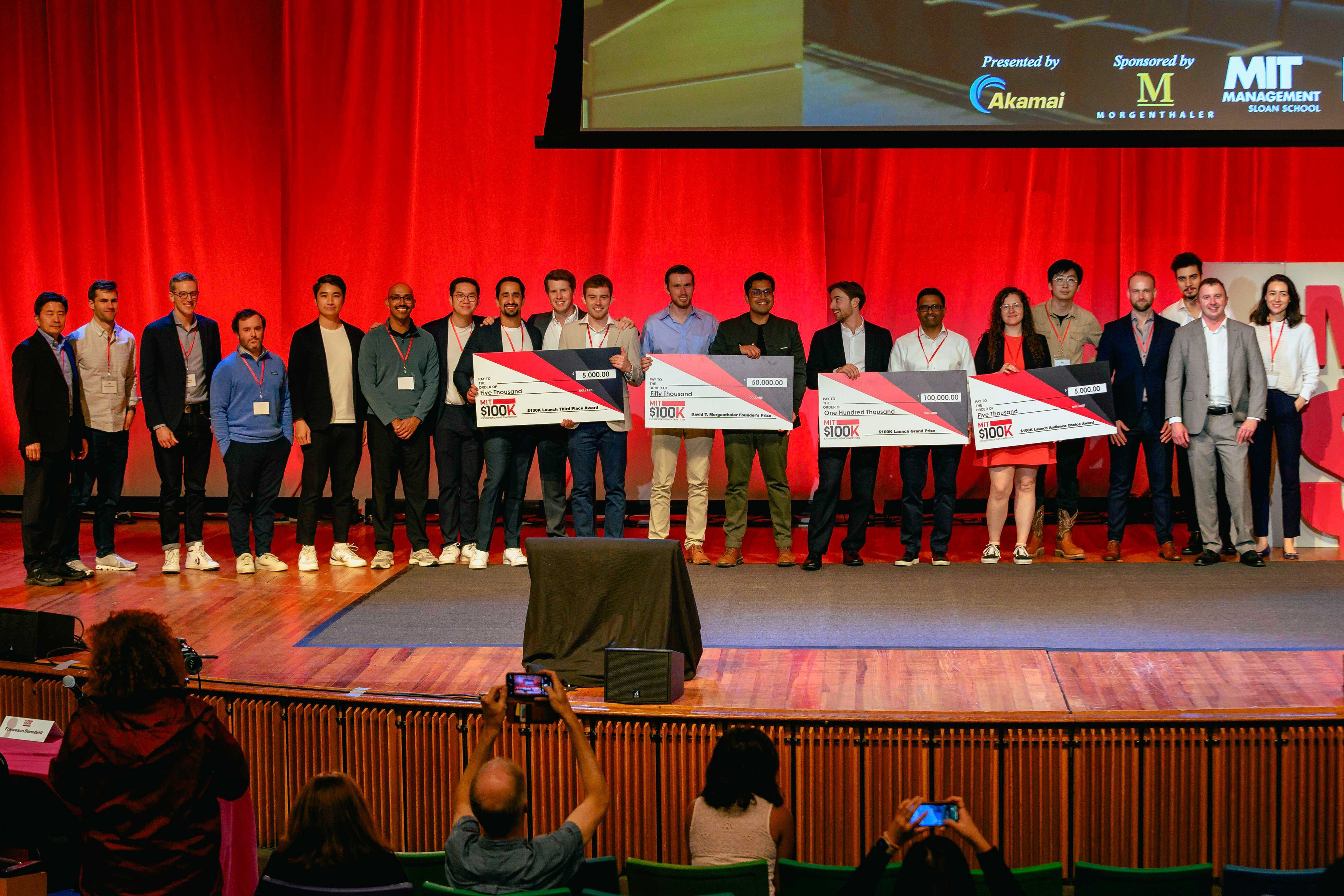
The winner of this 12 months’s MIT $100K Entrepreneurship Competitors helps superior therapies attain extra sufferers sooner with a brand new form of drug-injection machine.
CoFlo Medical says its low-cost machine can ship biologic medicine greater than 10 occasions sooner than present strategies, accelerating the therapy of a spread of circumstances together with cancers, autoimmune illnesses, and infectious illnesses.
“For sufferers battling these illnesses, each hour issues,” stated Simon Rufer SM ’22, who based the corporate with Vishnu Jayaprakash PhD ’21 and MIT Professor Kripa Varanasi. “Biologic medicine are able to treating among the most difficult illnesses, however their administration is unacceptably time-consuming, infringing on the liberty of the affected person and successfully leaving them tethered to their hospital beds. The requirement of a hospital setting additionally makes biologics all however not possible in distant and low-access areas.”
As we speak, biologic medicine are primarily delivered by way of intravenous fusions, requiring sufferers to take a seat in hospital beds for hours throughout every supply. That’s as a result of many biologic medicine are too viscous to be pushed by way of a needle. CoFlo’s machine allows fast injections of biologic medicine regardless of how viscous. It really works by surrounding the viscous drug with a second, lower-viscosity fluid.
“Think about making an attempt to drive a liquid as viscous as honey by way of a needle: It’s merely not potential,” stated Rufer, who’s at present a PhD candidate within the Division of Mechanical Engineering. “Over the course of six years of analysis and growth at MIT, we’ve overcome a myriad of fluidic instabilities which have in any other case made this know-how not possible. We’ve additionally patented the elemental internal workings of this machine.”
Rufer made the profitable pitch to a packed Kresge Auditorium that included a panel of judges on Might 12. In a video, he confirmed somebody injecting biologic medicine utilizing CoFlo’s machine utilizing one hand.
Rufer says the second fluid within the machine could possibly be the buffer of the drug answer itself, which wouldn’t alter the drug formulation and will probably expedite the machine’s approval in scientific trials. The machine may simply be made utilizing present mass manufacturing processes, which can preserve the fee low.
In laboratory experiments, CoFlo’s workforce has demonstrated injections which can be as much as 200 occasions sooner.
“CoFlo is the one know-how that’s able to administering viscous medicine whereas concurrently optimizing the affected person expertise, minimizing the scientific burden, and decreasing machine price,” Rufer stated.
Celebrating entrepreneurship
The MIT $100K Competitors began greater than 30 years in the past, when college students, together with the late MIT Professor Ed Roberts and David T. Morgenthaler, raised $10,000 to show MIT’s “mens et manus” (“thoughts and hand”) motto right into a startup problem. Over time, with sponsor assist, the occasion grew into the renown, extremely anticipated startup competitors it’s as we speak, highlighting among the most promising new firms based by MIT group members annually.
The Monday night time occasion was the fruits of months of labor and preparation by collaborating groups. The $100K program started with pupil pitches in December and was adopted by mentorship, funding, and different assist for choose groups over the course of ensuing months.
This 12 months greater than 50 groups utilized for the $100K’s remaining occasion. A community of exterior judges whittled that all the way down to the eight finalists that made their pitches.
Different winners
Along with the grand prize, finalists had been additionally awarded a $50,000 David T. Morgenthaler Founder’s Prize, a $5,000 third-place prize, and a $5,000 viewers selection award, which was voted on throughout the decide’s deliberations.
The David T. Morgenthaler Founder’s Prize went to Haven, a man-made intelligence-powered monetary planning platform that helps households handle lifelong incapacity care. Haven’s pitch was delivered by Tej Mehta, a pupil within the MIT Sloan College of Administration who defined the issue by sharing his family’s expertise managing his sister’s mental incapacity.
“As my household plans for the longer term, a lot of questions are holding us up at night time,” Mehta advised the viewers. “How a lot cash do we have to save? What public advantages is she eligible for? How will we construction our non-public property so she doesn’t lose these public advantages? Lastly, how will we handle the funds and compliance over time?”
Haven works by utilizing household data and objectives to construct a personalised roadmap that may predict care wants and prices over greater than 50 years.
“We advocate to households the precise subsequent steps they should take, what to use for, and when,” Mehta defined.
The third-place prize went to Aorta Scope, which mixes AI and ultrasound to supply augmented actuality steerage throughout vascular surgical procedure. As we speak, surgeons should depend on a 2-D X-ray picture as they feed a big stent into sufferers’ physique throughout a standard surgical procedure referred to as endovascular restore.
Aorta Scope has developed a platform for real-time, 3-D implant alignment. The answer combines intravascular ultrasound know-how with fiber optic form sensing. Tom Dillon constructed the system that mixes information from these sources as a part of his ongoing PhD in MIT’s Division of Mechanical Engineering.
Lastly, the viewers selection award went to Flood Dynamics, which gives real-time flood threat modeling to assist cities, insurers, and builders adapt and defend city communities from flooding.
Though most city flood damages are pushed by rain as we speak, flood fashions don’t account for rainfall, making cities much less ready for flooding dangers.
“Flooding, and particularly rain-driven flooding, is the most expensive pure hazard all over the world as we speak,” stated Katerina Boukin SM ’20, PhD ’25, who developed the corporate’s know-how at MIT. “The value of staying rain-blind is de facto steep. This is a matter that’s costing the U.S. alone greater than $30 billion a 12 months.”





































